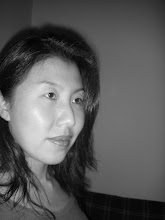Listen If You Will (a short story)
Copyright® Michele Koh Morollo 2010
Welcome to the 11th House. The number 11 signifies the completion of one life cycle. The gift of truth and clarity is symbolized by this number. At the 11th House, we can manifest our destinies as we embark on the journey of the spirit warrior. The root of all evil is ignorance...but perhaps with open dialogue, a bit of insight, and loving-kindness we can alleviate the pain of a broken spirit or disturbed mind.

Michele is a 36 year-old journalist and the author of "Rotten Jellybeans", a semi-autobiographical collection of short stories and essays. Her book is available at Amazon.com and Chipmunkapublishing.co.uk. She has had two short stories published in "Love and Lust in Singapore". You can view samples of Michele's published articles at www.michelekohmorollo.com